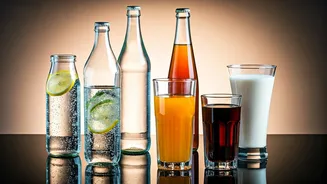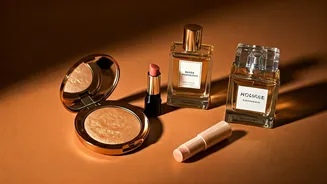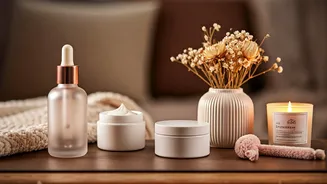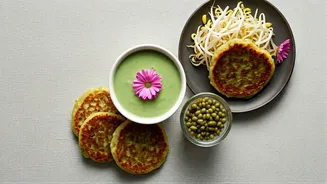Sugary Soft Drinks
Sugary soft drinks are a significant contributor to skin problems. These beverages are often loaded with high levels of sugar, which can trigger a process
called glycation. This process happens when excess sugar molecules attach to collagen and elastin, two vital proteins that keep skin firm and elastic. When glycation occurs, these proteins become damaged, leading to the formation of wrinkles, fine lines, and a loss of skin elasticity. Furthermore, high sugar intake can cause inflammation throughout the body, including the skin. Inflammation can worsen conditions like acne, eczema, and rosacea. Regular consumption of sugary drinks can also spike insulin levels, which can stimulate the production of sebum, leading to clogged pores and breakouts. Reducing or eliminating these drinks can result in clearer, healthier, and more youthful-looking skin. Replacing sugary beverages with water, herbal teas, or unsweetened options is a simple way to protect your skin.
Excessive Tea Intake
While tea offers numerous health benefits, excessive consumption can harm your skin. Tea contains caffeine, a diuretic that can lead to dehydration if consumed in large quantities. Dehydration can cause the skin to appear dry, dull, and less plump, diminishing its natural radiance. Additionally, excessive tea intake, especially if tea bags are used frequently, might expose the skin to higher levels of tannins. Tannins can have a drying effect on the skin, potentially leading to irritation and a loss of moisture. The caffeine in tea can also affect the body's ability to absorb essential nutrients that are vital for skin health, like iron. Iron deficiency can manifest in various skin issues, including paleness and a general lack of vitality. To maintain healthy skin, moderation is key. Limiting daily tea intake and ensuring adequate water consumption can help counteract any potential dehydrating effects and maintain skin hydration.
Packaged Fruit Juices
Packaged fruit juices, often marketed as healthy choices, can be detrimental to skin health due to their high sugar content. Even if the labels state '100% juice,' these beverages often lack the fiber found in whole fruits, leading to a quick surge in blood sugar levels. This sugar spike can trigger glycation, similar to sugary soft drinks, causing collagen and elastin damage. The loss of collagen and elastin can lead to the appearance of wrinkles and a loss of skin elasticity. Furthermore, many packaged juices have added sugars or artificial sweeteners to enhance their taste, further increasing their potential for damaging the skin. These additives can intensify the inflammatory response within the body, which can exacerbate acne, eczema, and other skin conditions. Opting for whole fruits or freshly made juices, with a balance of fruits and vegetables, can provide better nutrition without the sugar overload. Always be mindful of the ingredients listed on the label and minimize consumption to protect skin health.
Energy Drinks' Impact
Energy drinks, popular for their immediate boost, can adversely affect your skin due to their combination of caffeine and added sugars. The high caffeine content can dehydrate the body, leading to dry, lackluster skin, and it also contributes to inflammation. Inflammation can trigger or worsen skin conditions like acne, eczema, and psoriasis. The significant sugar content in energy drinks further fuels the glycation process, damaging the collagen and elastin that give the skin its firmness and resilience, which accelerates aging signs. Artificial sweeteners and additives found in many energy drinks can be additional triggers for skin sensitivities and inflammatory responses. Regular consumption can also disrupt the body's natural balance, potentially affecting hormone levels and contributing to breakouts and other skin issues. For skin health, it's beneficial to limit or avoid energy drinks. Instead, choose water, herbal infusions, or naturally energizing foods that benefit both the skin and overall health.
Alcohol's Effects
Alcohol is another beverage that can negatively impact skin health. Drinking alcohol can cause dehydration, as it is a diuretic, which leaves the skin dry, flaky, and less supple. Dehydration hinders the skin's ability to maintain its protective barrier, making it more vulnerable to environmental damage. Alcohol can also dilate blood vessels, leading to flushing and potentially contributing to redness and inflammation, especially in individuals prone to rosacea. Furthermore, alcohol consumption can deplete the body's stores of essential nutrients, including Vitamin A, which is crucial for skin cell turnover and regeneration. Vitamin deficiencies can manifest in various skin problems, such as dryness, acne, and a dull complexion. Frequent alcohol use can also disrupt hormone balance, leading to breakouts and skin irritation. Enjoying alcoholic beverages in moderation, while staying hydrated, can help minimize their adverse effects on the skin, maintaining both skin health and overall wellness.














